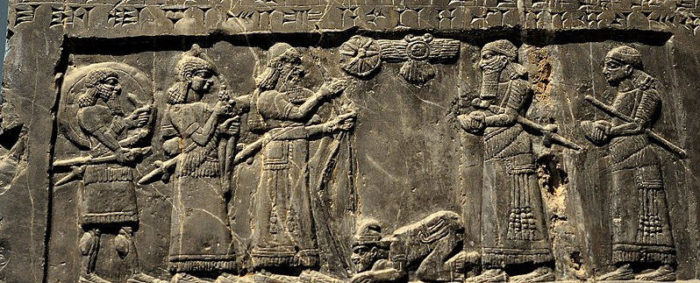The names of Hosea’s children surely raised quite a few eyebrows in Hebrew kindergarten. The name Jezreel means, “May God sow.” But more shockingly, the Jezreel valley was well known as the location of much fighting and bloodshed (1 Sam 29:1; 2 Sam 2:8; 1 Kgs 21:1; 2 Kgs 9:24ff). Lo-Ruhamah, Hosea’s second child, means “Not loved.” You can imagine roll call when that name comes up. The third child, Lo-Ammi, means “not my people.” Each of these names were given to Hosea from God to symbolize God’s relationship with the people Israel.
Although it seems relatively clear why Hosea was told to declare Israel’s sin and their broken relationship with God, some of the details are less clear. In fact, Hosea 1:4, seems to be a bit puzzling.
And the LORD said to him, “Name him Jezreel; for yet a little while, and I will punish the house of Jehu for the bloodshed of Jezreel, and I will put an end to the kingdom of the house of Israel.”
As this verse seems to indicate, Jehu’s family (and Northern Israel’s last dynasty) is going to be punished because of the bloodshed at Jezreel. The only possible reference seems to be 2 Kings 9:24–10:17, where at Jezreel, Jehu kills Joram, Ahaziah, Jezebel, and Ahab’s descendants.
However, this seems to be problematic when we compare 2 Kings 10:30:
The LORD said to Jehu, “Because you have done well in executing what is right in My eyes, and have done to the house of Ahab according to all that was in My heart, your sons of the fourth generation shall sit on the throne of Israel.”
In 2 Kings 10:30 it seems that the Lord is pleased with Jehu’s actions in killing the idolatrous kings of Israel and wiping out Baalism from the land. So, why does Hosea 1:4 seem to indicate that Jehu’s family will be punished “for the bloodshed of Jezreel?”
The above translations come from the NASB. Other translations also give the same idea. For example, the NIV translates the phrase, “I will soon punish the dynasty of Jehu on account of the bloodshed in the valley of Jezreel.”
In Hebrew the pertinent section of Hosea 1:4 reads וּפָקַדְתִּי אֶת־דְּמֵי יִזְרְעֶאל עַל־בֵּית יֵהוּא, which translates as “I will visit the blood of Jezreel upon the house of Jehu.” This leads to the interpretive issue of what the “blood of Jezreel” refers to. Does it refer to Jehu’s wrongful action? Or, as is more likely in my opinion, does “the blood of Jezreel” refer to the outcome of the slaughter at Jezreel?
In other words, what Jehu justly accomplished at Jezreel will now be done to his family because of their own iniquity. Jehu and his family should have learned from history, but now the same fate of the evil kings Joram and Ahaziah will come upon Jehu’s family.
This interpretation follows the HCSB translation, “Then the LORD said to him: Name him Jezreel, for in a little while I will bring the bloodshed of Jezreel on the house of Jehu and put an end to the kingdom of the house of Israel.”
Although the majority of English translations do not follow this interpretation, it seems to be a simple, straightforward approach to the grammar of Hosea 1:4, and also takes God’s positive evaluation of Jehu’s action in 2 Kings 10:30 into consideration. The house of Jehu is not being punished for what Jehu did at Jezreel. Rather, what happened at Jezreel will now happen to Jehu’s house.
This post was originally published here.

